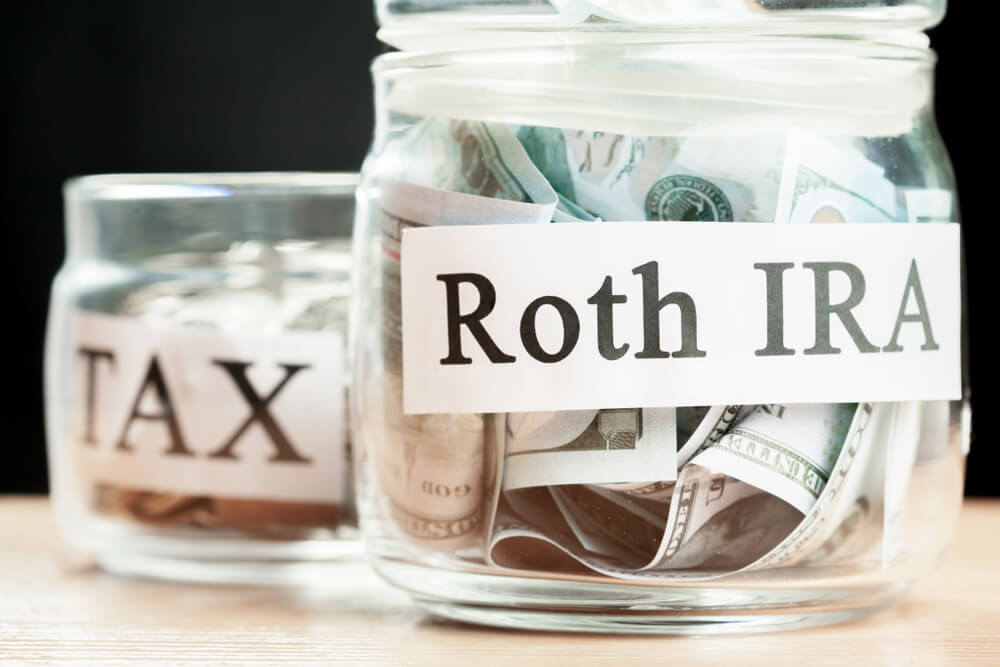William Roth, the late U.S. senator from Delaware, should have his face on Mt. Rushmore.
OK, that might be a bit of an exaggeration. He probably doesn’t belong in the American pantheon with the likes of Washington and Lincoln. But as the sponsor and namesake of the bill that created the Roth IRA, Roth certainly has a special place in U.S. history for American retirement savers.
Roth IRA vs. 401(k)
Traditional retirement plans give you a tax break in the year you make the contribution and allow for tax-free compounding of all capital gains, dividends and interest. You pay taxes as ordinary income when you eventually take the funds out in retirement, and you’re generally required to start taking distributions after the age of 70 ½.
In Roth accounts, you get no current-year tax break. But all investment gains likewise get to compound tax free. All distributions after age 59 ½ are tax free, and – importantly – there are no required minimum distributions, or RMDs. You can let the account grow tax free until you croak, if that suits you, and let your heirs spend it.
So should you open a Roth IRA right now?
That depends.
Most financial planners naturally gravitate toward the Roth accounts, but I take a more nuanced view. Depending on your income level, your other assets, and your retirement planning, a traditional IRA or 401(k) might be a far better option.
Let’s say you’re in the prime of your career and you find yourself in a high tax bracket. Furthermore, you know that once you stop working, your income will drop significantly and you’ll be in a lower bracket. And in any event, you’re going to need these retirement funds to fund your living expenses when the day comes.
Well, if that’s you, you want the tax break today. You should go with a traditional 401(k) or IRA.
Now, let’s say you’re young and you’re in a low tax bracket. Or let’s say that, for some reason, you find yourself in a lower tax bracket than usual. Perhaps your spouse is out of work or you had business setbacks that have temporarily depressed your income. Or, let’s say you already have a nice nest egg set aside to fund your retirement and you’re looking more to leave a tax-advantaged gift to your children or grandchildren.
In any of these cases, the Roth IRA right now or 401(k) is the way to go.
Converting to a Roth IRA
2020 is a strange year, to say the least. With the Covid-19 lockdowns disrupting business, many people are writing it off as a lost year altogether.
But crisis years like this give us the opportunity to make the proverbial lemonade out of lemons. If you are truly in dire financial straits, you shouldn’t be putting money into a retirement account at all. You should be staying liquid in cold, hard cash.
But let’s say your income has taken a hit but that you also have sufficient savings to get through this without distress. In that case, you have options. You can make Roth contributions to your 401(k) or IRA this year and go back to making traditional contributions once your income rebounds and you find yourself in a higher bracket again.
Or, if you want to make a major planning move, you can convert your existing traditional IRA or 401(k) to a Roth IRA right now. Depending on the size of your account, this could land you with a massive tax bill. So you’ll really want to do the math to figure out of this makes sense for you. But if your income is in the toilet this year due to virus disruptions, it very well could make sense.
Also, note that not all company 401(k) plans allow for a Roth conversion. This is something you’ll need to discuss with your plan sponsor.
• Money & Markets contributor Charles Sizemore specializes in income and retirement topics, and is a frequent guest on CNBC, Bloomberg and Fox Business.
Follow Charles on Twitter @CharlesSizemore
